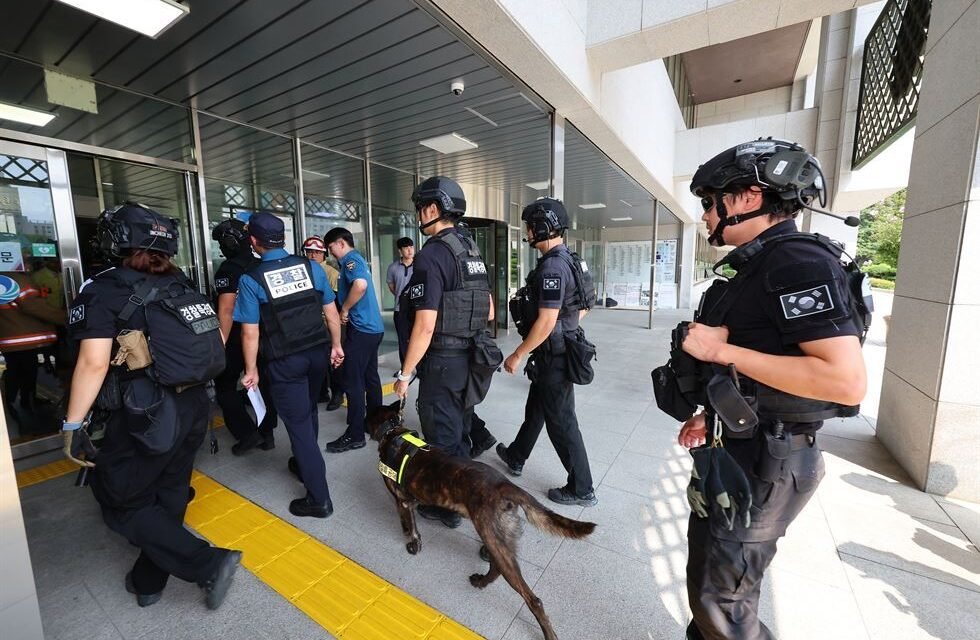Starting in July and continuing through early August 2025, South Korea has seen a disturbing rise in fake bomb threats sent via fax and email. These false alarms have led to mass evacuations, heavy police response, and growing public worry. Authorities are treating each threat as real, even though investigations have shown them to be hoaxes.
Multiple Fake Bomb Alerts via Fax Disrupt Events, Evacuations Ensue
A series of alarm-raising incidents triggered special police units across the country. One threat targeted a concert venue hosting the popular K-pop band The Boyz. The show was delayed for two hours after an anonymous fax warning of explosives. Concerned police thoroughly searched the venue and found nothing dangerous.

Another serious threat came for the Olympic Gymnastics Arena, also known as the KSPO Dome in Seoul. A threatening fax prompted authorities to evacuate around 2,000 spectators. Thankfully, the gymnasium was declared safe after a thorough sweep.
Hoax Author Using Same Fax Number Pretending to Be Japanese Lawyers
Police traced multiple threats back to the same fax number. Alarmingly, officials used it in earlier warnings, including a false alert about a ‘sulfuric acid attack’ targeting students Those sending these alarming messages claimed to be Japanese lawyers, using names like Takahiro Karasawa and Cho Hak-seok. There is no such lawyer registered among Korean bar members.
Authorities are working closely with Japanese law enforcement and Interpol to trace the source. Despite over forty similar threats since August 2023, most suspects have not been arrested or prosecuted.
Surge in False Threats Overwhelms Police Resources Nationwide
From 2023 through mid-2025, police received nearly 943 terror-related reports including bomb threats and other alarms doubling the number from previous years. Each call triggers the deployment of highly trained units: bomb squads, K9 units, and tactical teams. This high tempo is wearing down resources, even though many cases turn out to be hoaxes.
A police official emphasized that authorities cannot ignore even suspicious threats and must treat every alert with utmost seriousness. Security experts are raising concerns about the lax legal consequences surrounding these dangerous stunts. South Korea’s current law allows up to five years in prison or a fine—not nearly enough to discourage misconduct, say analysts.
Professor Kwak Dae-kyung noted that the constant wave of false threats could have two worrying results. One, people may grow overly fearful, feeling something is always about to happen. Two, they may start ignoring alerts altogether. Both scenarios pose serious risks to public safety.

